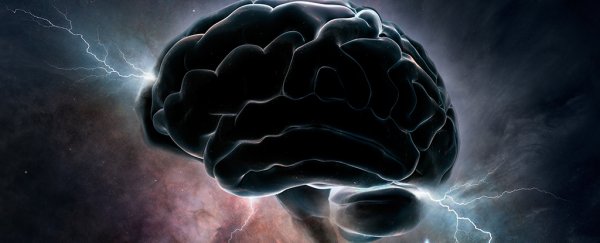The history of cosmology has its fair share of whacky ideas, but one of the strangest has to be the Boltzmann brain hypothesis – which suggests your mind is the result of a spontaneous, random assortment of particles.
If that makes you feel a little depressed, good news! According to at least one physicist, your brain probably didn't pop into existence one day.
That's the conclusion put forward by renowned cosmologist and author Sean Carroll, who argues we should reject any cosmological models of the Universe which spawn weird, hypothetical entities called Boltzmann brains.
It sounds more like an idea you'd find on the slush pile of some pulp science-fiction magazine from the 1950s – conscious minds spontaneously forming as the result of the random assortment of particles.
Yet there is some sort of reasoning behind this mad idea.
The 19th century physicist Ludwig Boltzmann suggested the Universe as we see it is highly improbable, since the laws of thermodynamics state entropy increases over time, making everything more chaotic rather than more structured.
This raises an interesting question; if the rules state the Universe should be getting more chaotic, why are there such well-structured things as human minds to observe it?
One answer to this problem is the anthropic principle; the laws of physics allows such minds to form, which can reflect back on themselves in wonder as to how they formed at all.
Or, as the writer Douglas Adams phrased it from the point of view of a puddle;
"This is an interesting world I find myself in – an interesting hole I find myself in – fits me rather neatly, doesn't it? In fact it fits me staggeringly well, must have been made to have me in it!"
Boltzmann's idea was a little different. He suggested that rather than being the product of order in an increasingly chaotic Universe, our minds (complete with memories) are the result of randomness plus infinite seconds.
Given enough time, an observer can simply pop into existence, much like the allegorical monkey on a typewriter eventually generating the works of Shakespeare by sheer chance.
As weird as that sounds, even if you accepted the anthropic principle, it would theoretically still be more likely that you're a Boltzmann brain. After countless eons, those randomly generated minds should outnumber any other kind, so statistically speaking the safe bet is you popped into existence.
Sure, this hypothesis is a little out there, and you'd be far from alone in thinking it. But it's one thing to think an idea sounds nutty, and another to demonstrate logically why it's likely to be false.
Carroll has now proposed a rather simple argument for why we should cast aside any model of a cosmos which results in such spooky observers.
Let's assume you are a Boltzmann brain. To exist, it's likely you needed far more than 13.82 billion years to have the right forces simply slip into place.
Based on that probability, it's unlikely that we can trust our observations on how the Universe works at all.
"We'd have no reason to believe that our memories of the past are accurate," as Carroll told New Scientist's Anil Ananthaswamy.
Considering the multitude of ways a brain can be wrong about the laws of the Universe, we can use the same reasoning to presume our hypothetical Boltzmann brain is probably wrong about how the Universe works, creating a paradox.
Carroll calls this conflict a 'cognitive instability', and suggests if it's mathematically unlikely to be a Boltzmann brain, we should rule out the models that can give rise to them.
If you think famous physicists should be doing something more productive with their time than disproving ghosts coalescing out of Universal chaos, Carroll does have a point to this exercise.
"If we construct a model … that seems to lead us into such a situation, our job as cosmologists is to modify it until this problem is solved, or search for a better theory," Carroll writes in his paper, which is yet to be peer reviewed but is available for all to read on the pre-publishing website arXiv.org.
Basically, on the off-chance we are minds that just popped into existence after breakfast one Tuesday, we'd probably be so wrong about our randomly generated observations we might as well not bother.
Until we can compare notes from other physicists with something to say on the matter, it's important to see it as just one scientist's take, yet for now it seems like a fairly logical rebuttal to one of the weirder ideas explaining our existence.
It might be an somewhat unusual way to whittle away less than useful cosmological theories, but it does help us prioritise a little easier.
Unless, of course, we're about to pop out of existence again. In which case, it really doesn't matter.
This paper can be found on the pre-publishing website arXiv.org.
